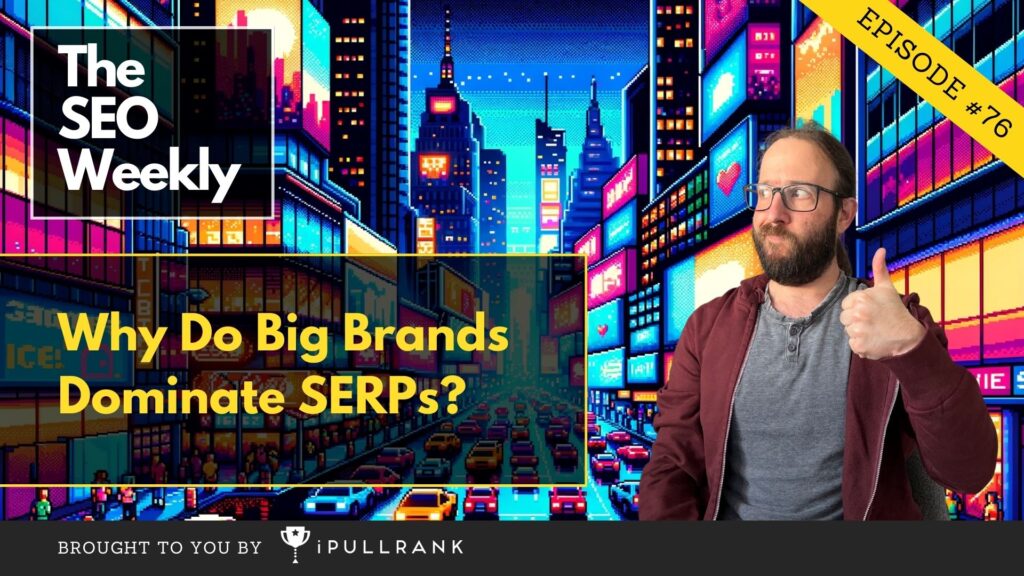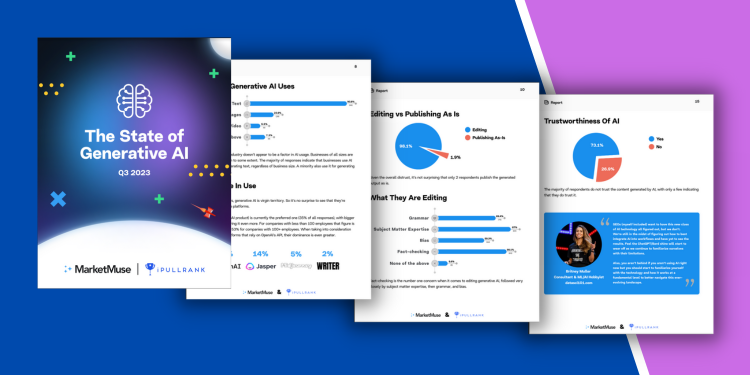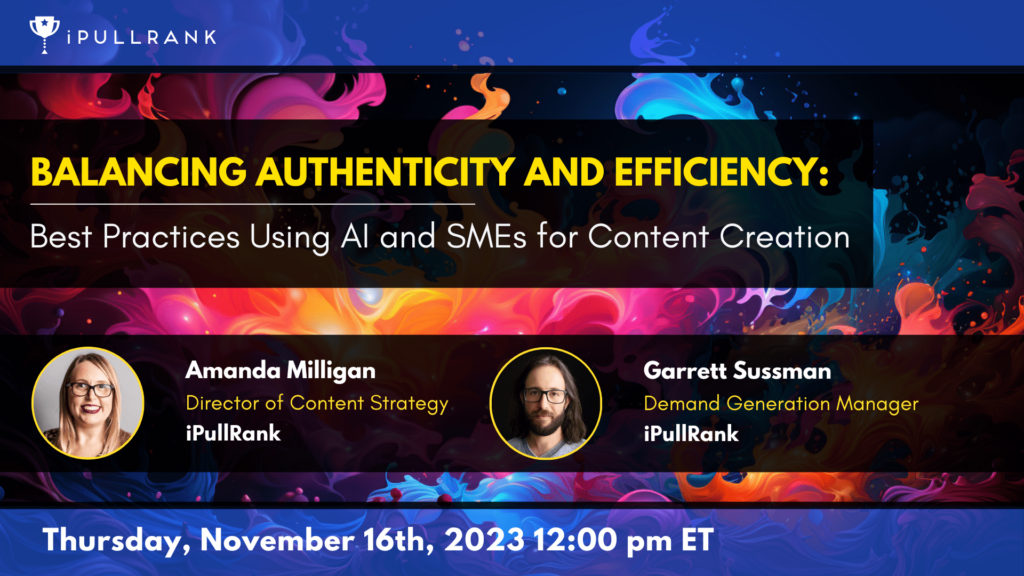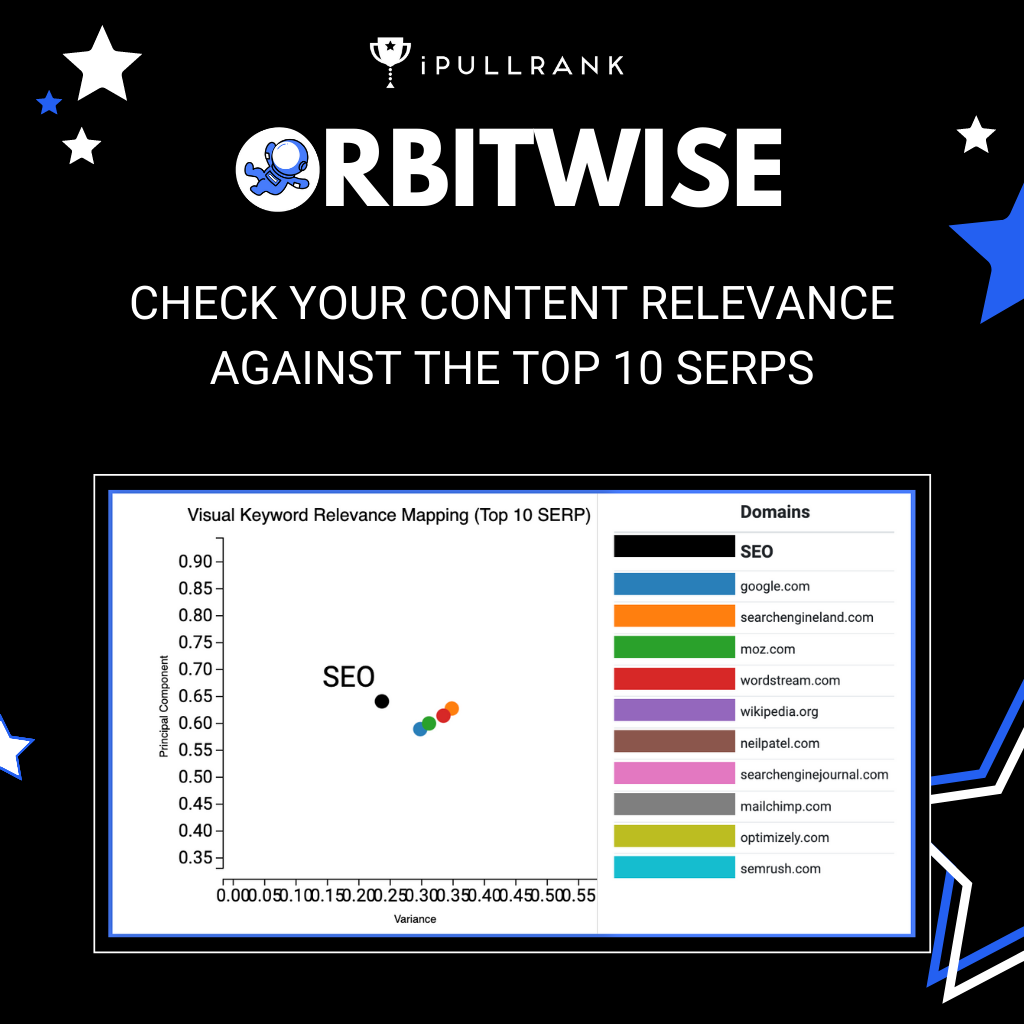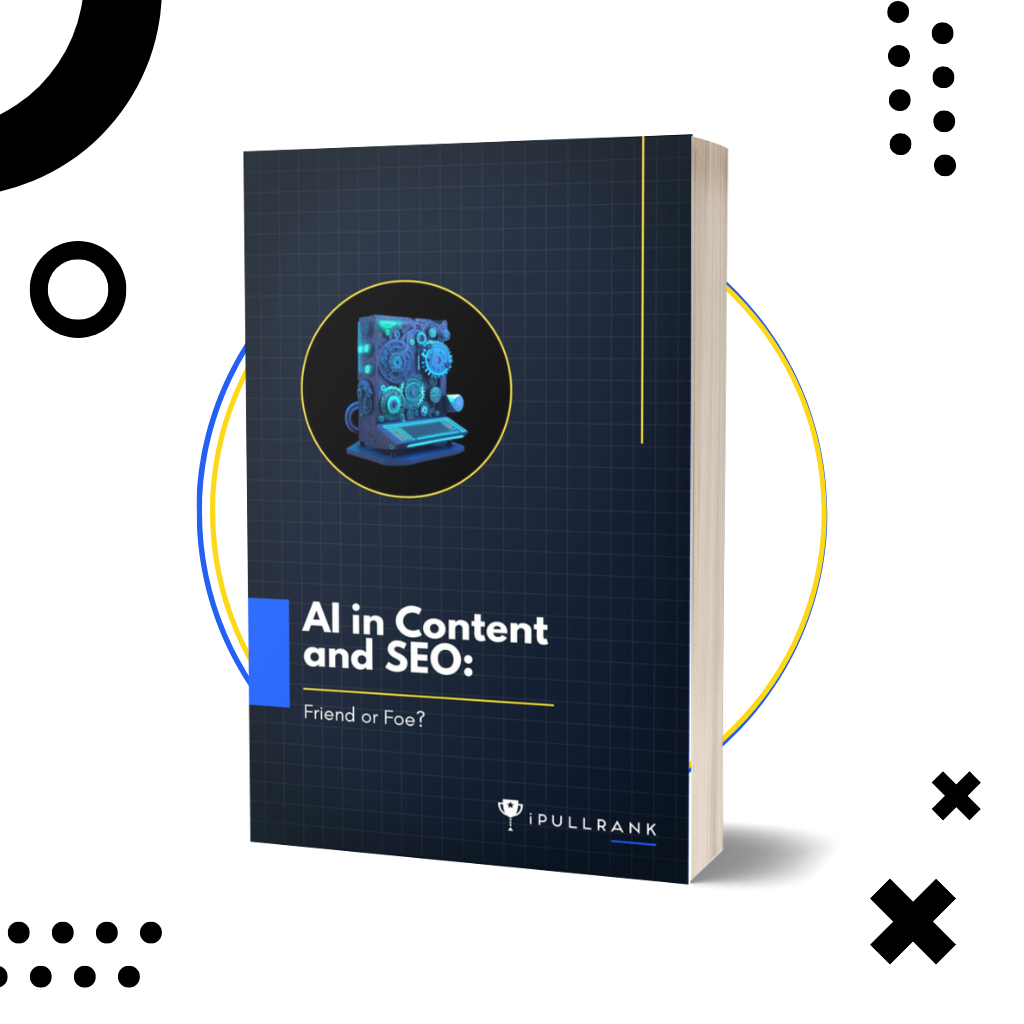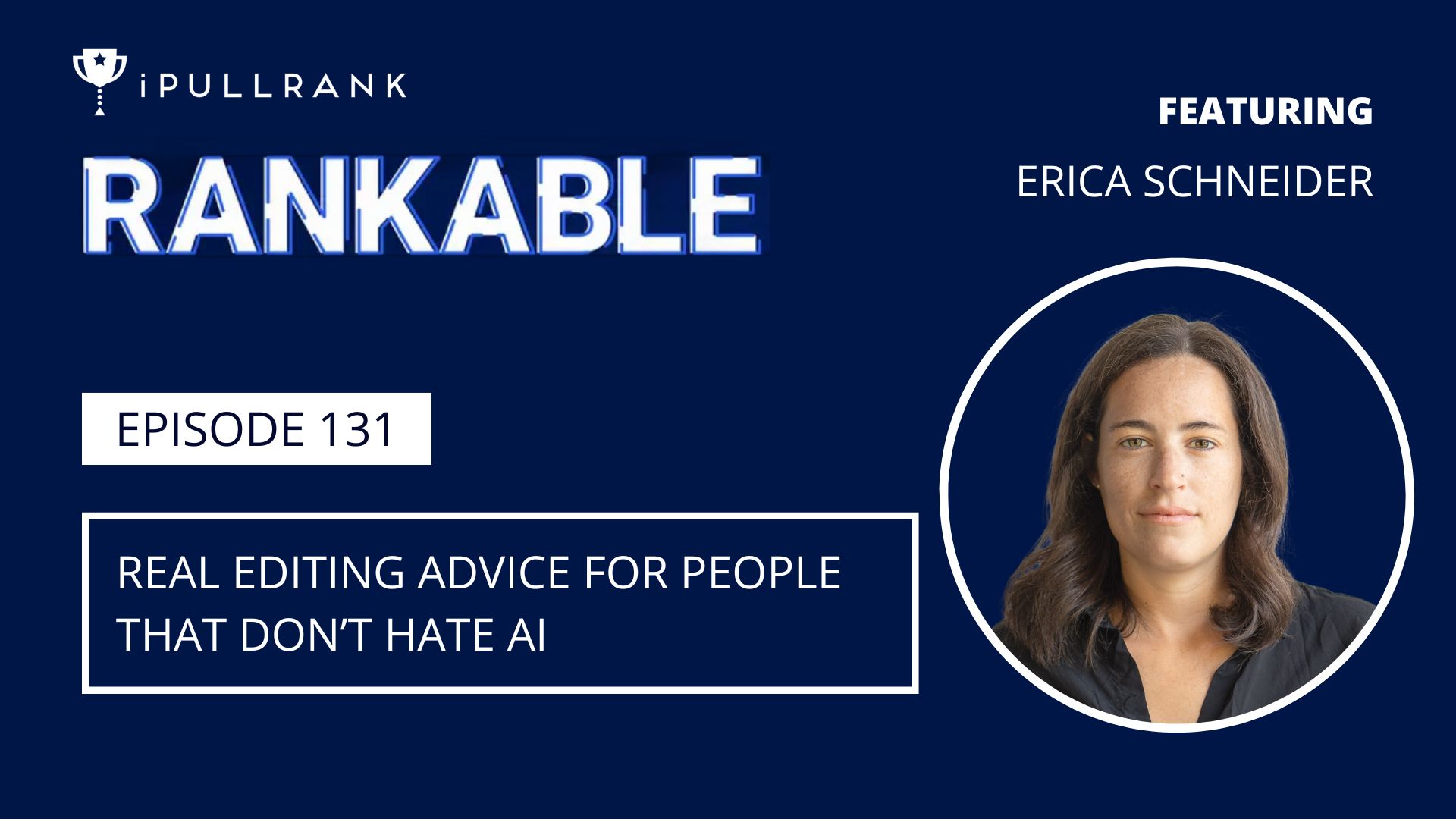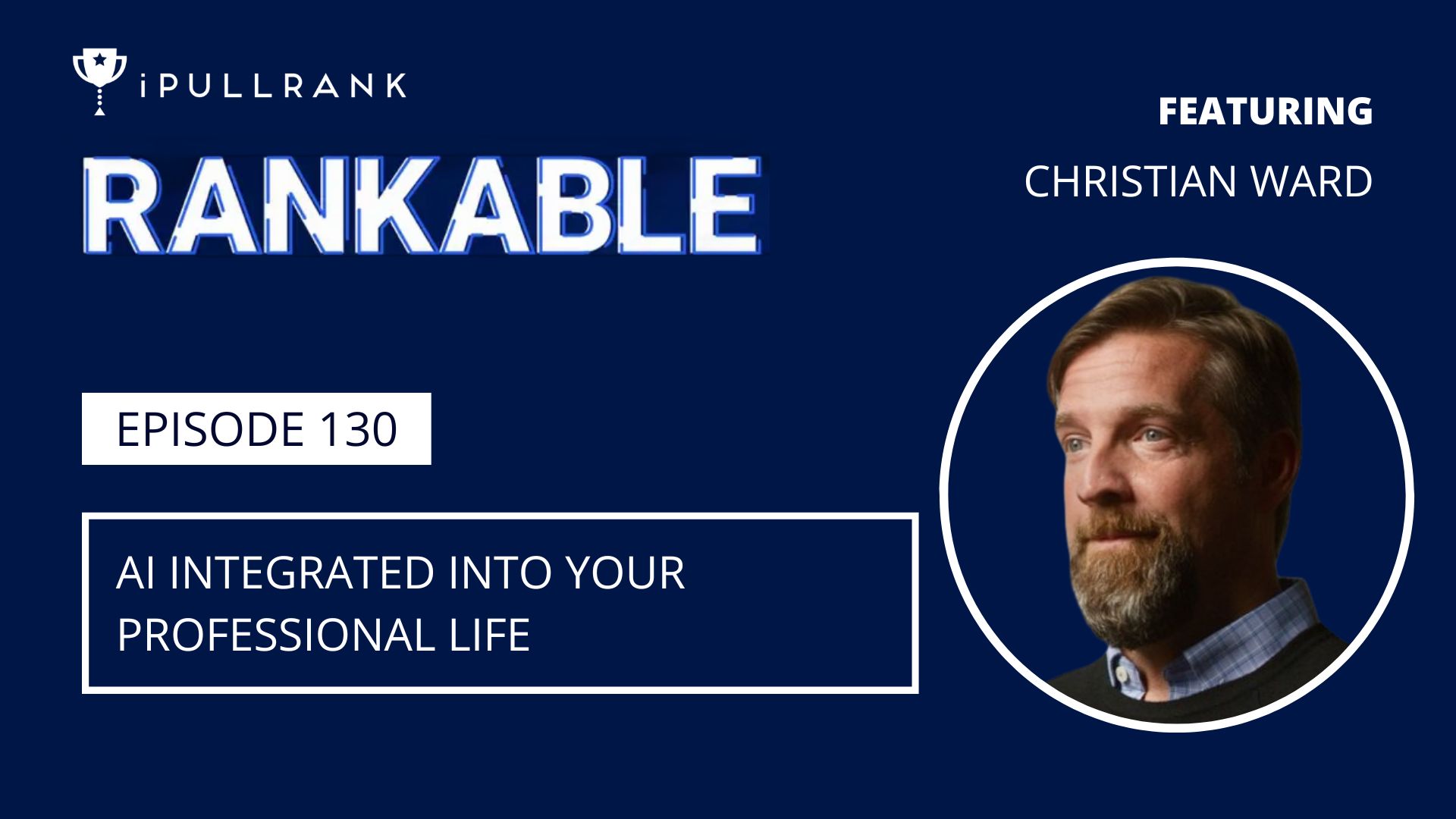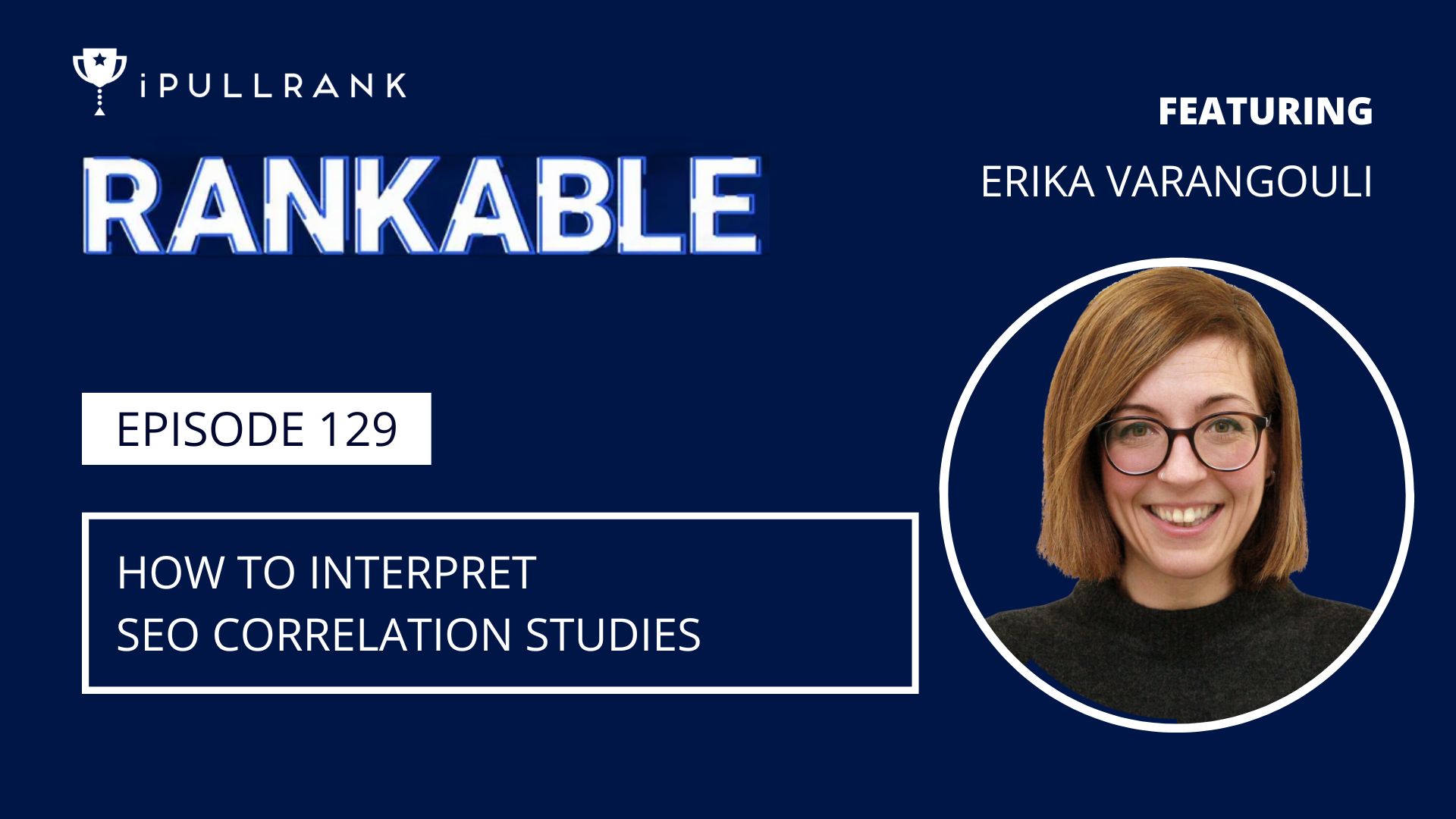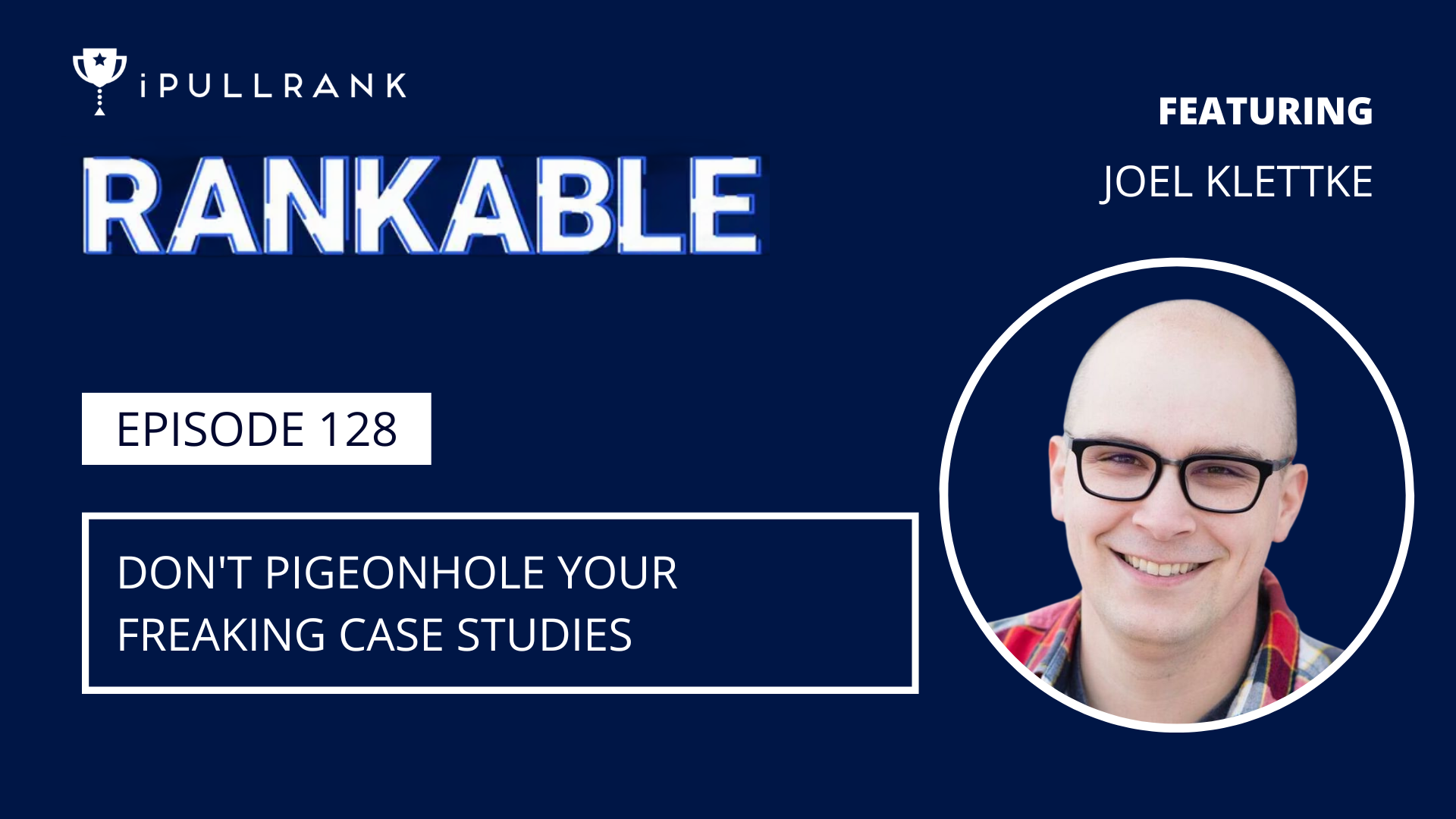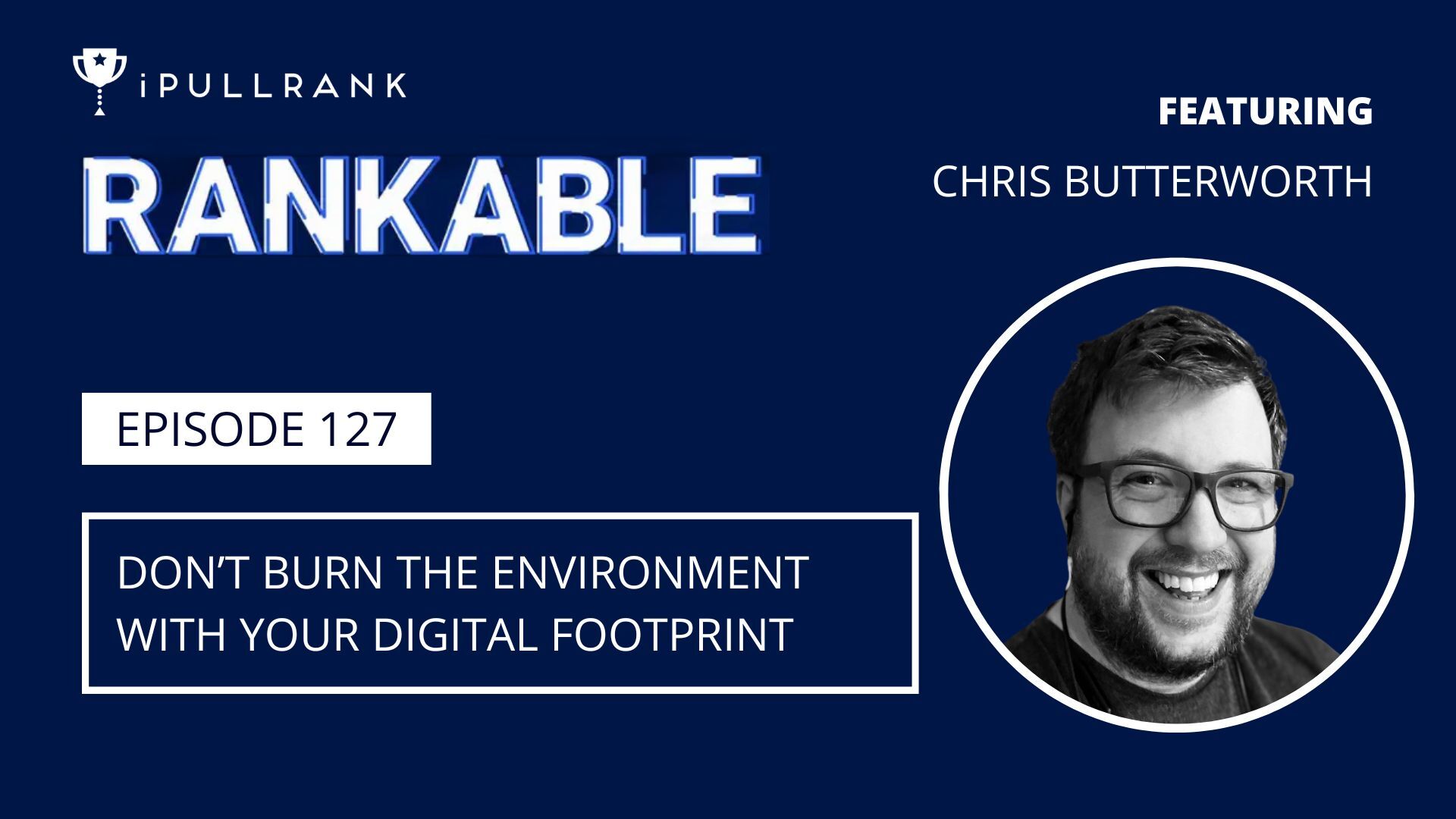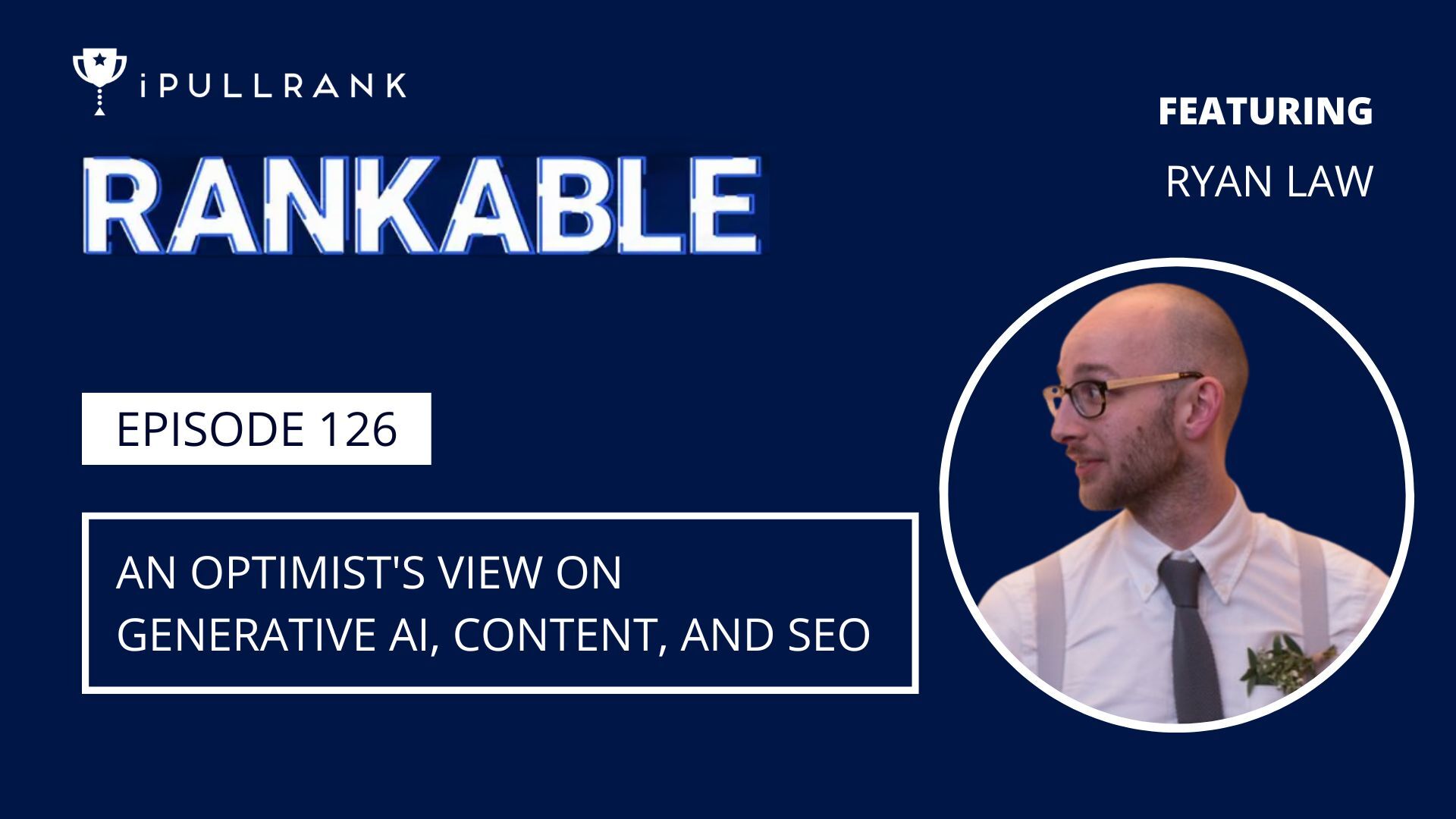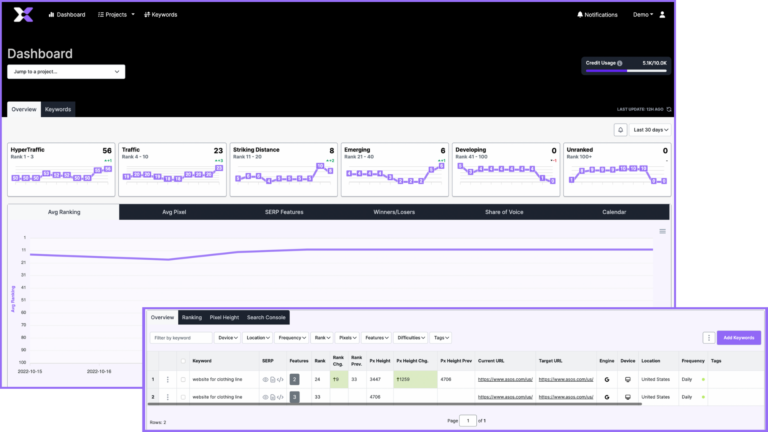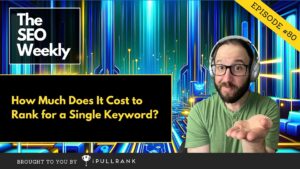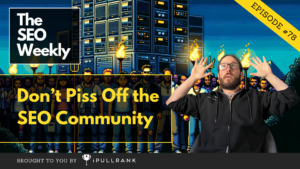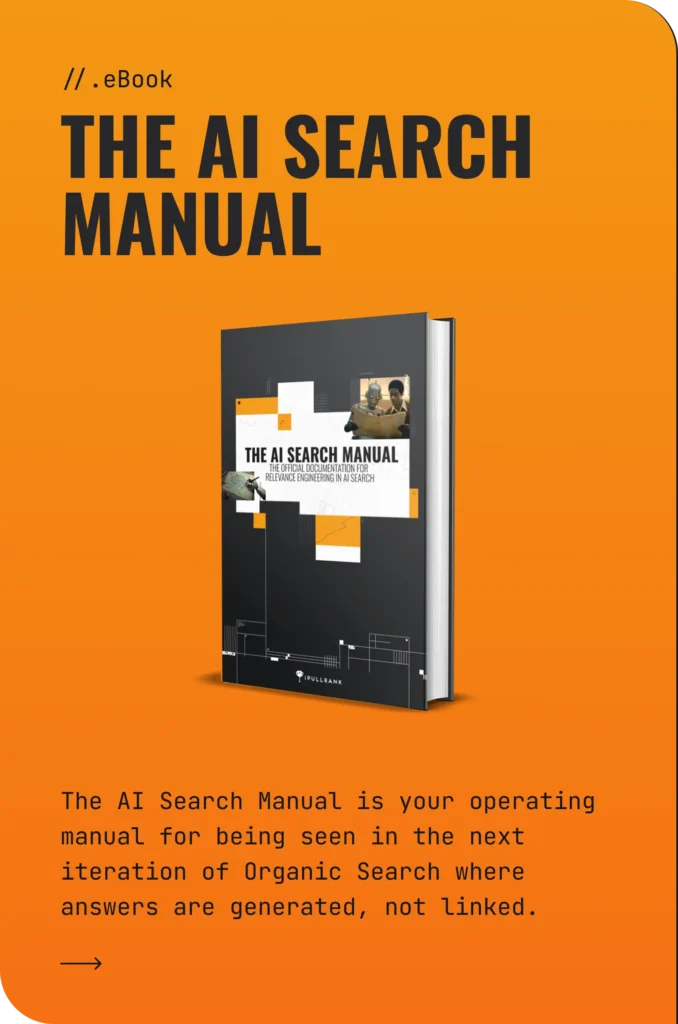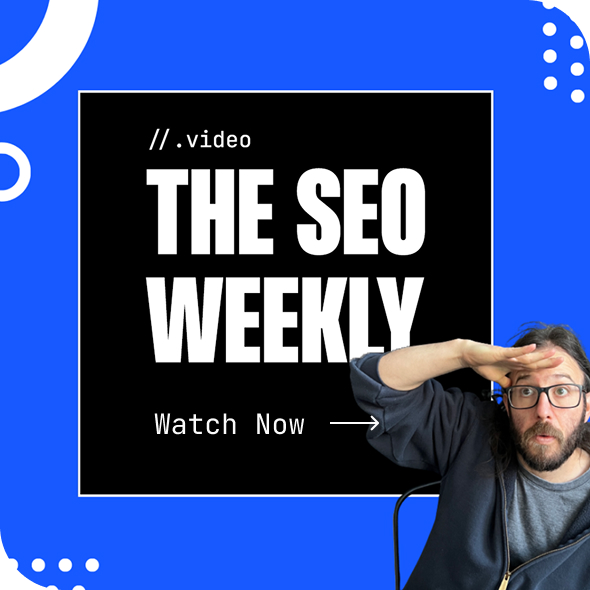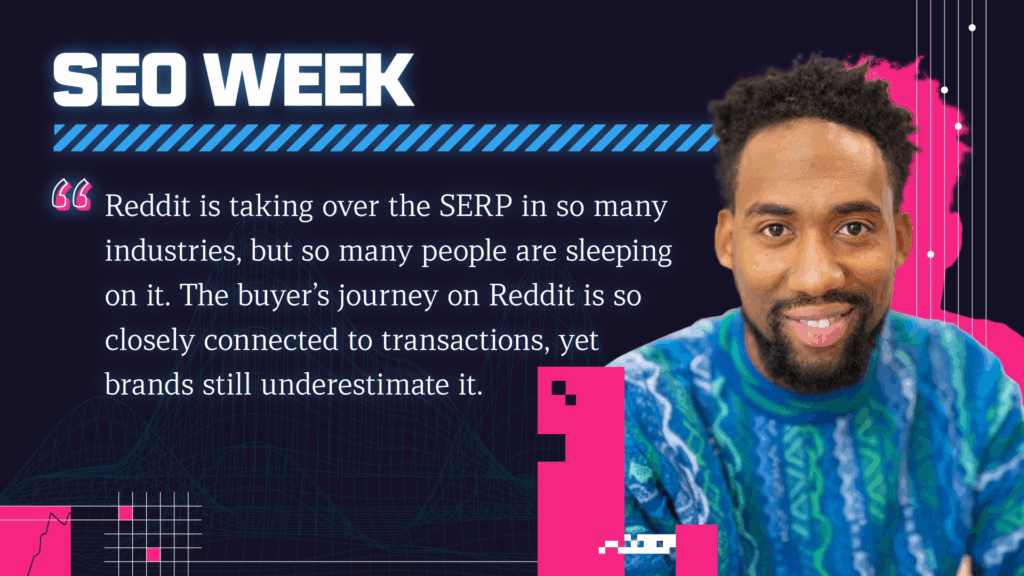The SEO Weekly
Why Do Big Brands Dominate SERPs? - Episode 76
Where queries are weird, advice is controversial, and everything depends.
We’ve got a reviews update rolled out, AJ Kohn publishes the most important SEO article of the year on Google’s messy and unfair SERPs, and we see more fluctuation from the November Core Update.
We also discussed how Google adds shopping features like a deals page ahead of Black Friday, the importance of Structured Data, and the importance of the content rubric.
Also:
- A parody Verge SEO Job Listing
- The State of Generative AI Report
- Local Landing Page Content
Host: Garrett Sussman | Demand Generation Manager
Show notes / References:
Google/SERP Updates:
On Wednesday, Google officially announced the Reviews System Update for the final time.
the November 2023 reviews update is also rolling out now (as per my last email: https://t.co/xny94FOVvn)
— Google Search Central (@googlesearchc) November 8, 2023
we'll update the ranking release history page when the rollout is finished: https://t.co/hgjEkfpbA2
Google’s reviews system update is engineered to prioritize and reward high-quality review content. It scrutinizes articles, blog posts, and similar standalone pieces, seeking out those that offer thorough research and expertise. The system operates primarily at the page level but may extend to a site-wide assessment for domains with extensive review content. It functions across multiple languages and utilizes a combination of signals, not solely product structured data, to discern and evaluate reviews.
For content creators, this means there’s a clear directive: produce review content that embodies insightful analysis and is penned by knowledgeable authors. The updates to this system will become a standard part of Google’s ongoing improvements, with significant changes communicated as necessary.
Takeaway: Commitment to quality and depth in review content is essential. Creators must consistently deliver expert and well-researched reviews to align with Google’s system and excel in search rankings.
How to find holiday shopping deals on Google – Danielle Buckley – Google
Google has released new ‘Shop Deals’ Pages that surface eCommerce discounts from online using the Shopping Graph.
SEO Context: These features aim to provide a richer, more integrated shopping experience directly within Google’s ecosystem. For SEOs, this underscores the importance of optimizing product pages for Google’s search and ensuring accurate and comprehensive product structured data. The ability to appear in personalized deal carousels and the use of discount codes and price alerts can drive traffic and conversions, especially when timed with Google’s updates.
Takeaway: For SEO, the focus should be on leveraging these features by ensuring products are well-represented within Google’s shopping capabilities, optimizing for visibility and user engagement.
The Messy Middle Ground of Google Ads ft. Susan Wenograd
Performance max campaigns rely on easy brand search volume initially but struggle to scale up, as the AI optimization for high ROAS doesn’t fit most brands’ broader business goals. Though Google aims to improve its AI by requesting more first-party data, brands hesitate to provide that level of access and oversight. The ideal balance leverages Google’s automation while still applying human intelligence to serve each specific business’ multifaceted objectives.
- Performance max relies heavily on brand search data initially
- Optimizing for one KPI like ROAS doesn’t fit most businesses’ larger goals
- Google wants more data to improve, but brands hesitate to access
Key Takeaway: The ideal situation balances leveraging Google’s AI with still applying human intelligence to serve each business’ unique objectives.
Danny Sullivan says he’ll pass along that there’s concern for big publishers ranking for irrelevant content (CNET example)
CNET ranks top 10 on best multivitamins.
— SEOwner (@tehseowner) November 6, 2023
CNET. Multivitamins.
I’m old enough to remember when CNET was a technology site. Now they have a page ab covering “health journalism” (aka affiliate posts).
Spamming 100k links overnight in
2012 was nowhere near this level of abuse. 😂 pic.twitter.com/UNT2fx89dE
Thanks. I've passed this feedback along. I think it's in line with the broader "so do big sites get to rank for anything" concern that I passed along earlier (see here: https://t.co/PRXI2z17vC).
— Google SearchLiaison (@searchliaison) November 6, 2023
It’s Goog Enough – AJ Kohn
In our feature story, this lengthy article discusses AJ Kohn’s perspective on the declining quality of Google search results. He argues that Google is relying too heavily on user clicks and brand affinity signals (which have been revealed definitively in the DOJ antitrust lawsuit), leading to suboptimal, bland results from sites like Forbes, U.S. News, and CNN instead of more niche, authentic content.
AJ provides ample examples of big brand sites ranking for queries they have no expertise in, and exploiting user trust in their brand name like the CNET tweet example above.
He traces how changes at Google, more ad space crowding out organic results, and new models like ChatGPT may be contributing factors. Ultimately, he sees an information asymmetry where sites can take advantage of users who assume big brand results are reliable.
- Google depends heavily on user clicks and engagement data that may be flawed or gamed
- Big brand sites are ranking above niche experts due to brand affinity and awareness
- Ad clutter, UI changes, and AI like ChatGPT exacerbate the issues
Takeaway: Google should refactor how it interprets engagement signals, roll back ad creep, reduce clutter, and add new signals to identify human vs. generative content. This could help surface more authentic, expert results and close the information asymmetry gap.
Do you have a Content Rubric? – Bernard Huang – Clearscope
Entry Level SEO for The Verge – Troll Job Listing by Nick LeRoy
The Verge is on the hunt for an SEO Intern (not really) who is ideally an insufferable internet denizen ready to degrade the web one clickbait piece at a time. This role is a perfect match for someone with a closet full of alligator onesies and the unique ability to turn Google’s free traffic into a goldmine of affiliate marketing riches. The ideal candidate should have an ego too large for shared office space, an alligator-wrangling license, and disdain for anything less than a Lamborghini—preferably one that doesn’t skimp on the scissor doors.
- If you can churn out content that’s as authentic as a politician’s promise and refer to yourself as a ‘content goblin’, this gig might just be your calling.
- Having more Lamborghinis than friends is a must, along with a belief that ‘SEO’ stands for ‘Seriously Enormous Opportunity’.
- Benefits include an endless supply of alligator onesies and being paid in the only currency that crunches—snacks!
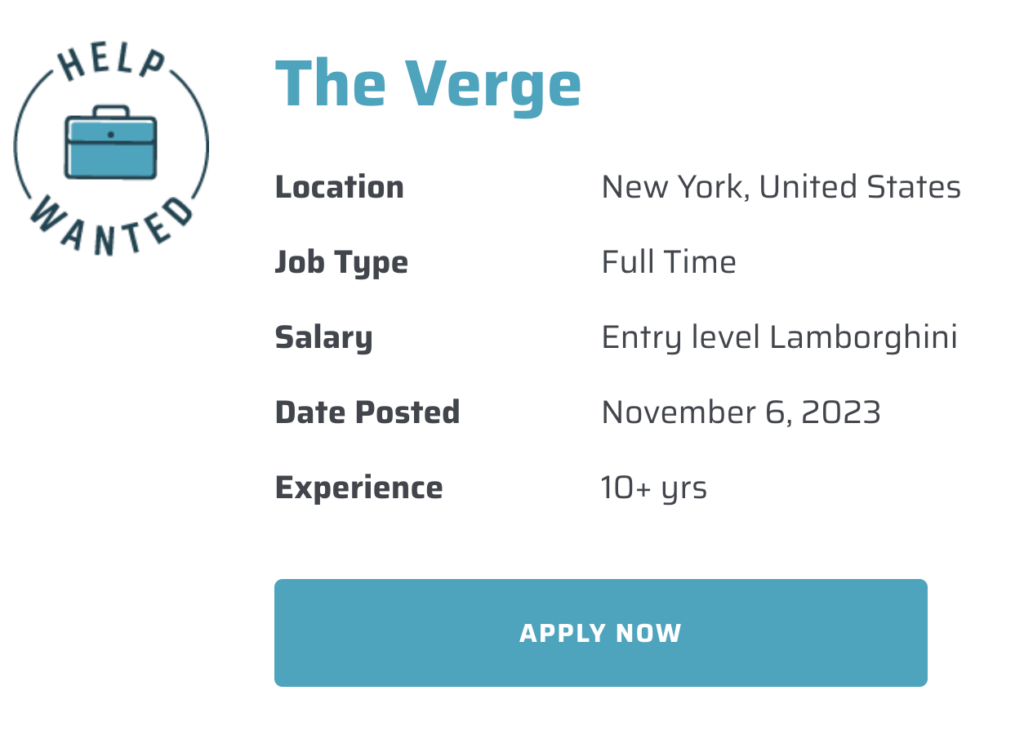
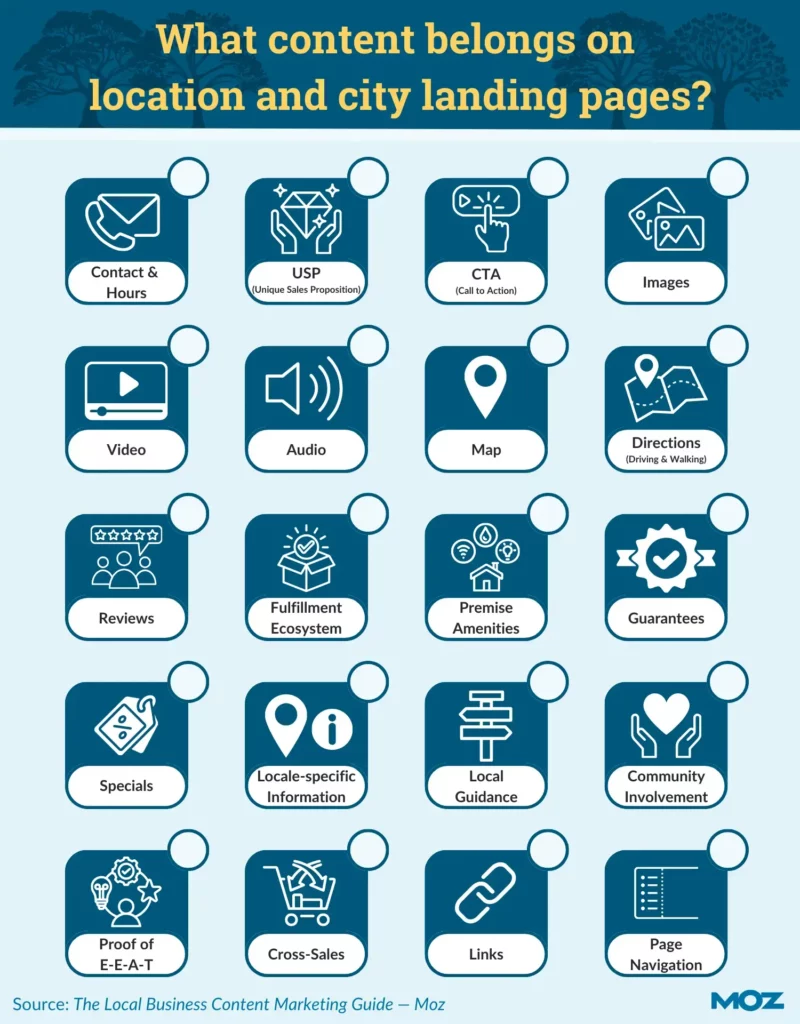
For effective local business content, it’s essential to craft unique landing pages for each location and city you serve. Tailor these pages with specific details and offerings that cater to the local audience. Use a mix of practical content elements like contact details, images, and customer reviews to provide a comprehensive and engaging user experience.
- Distinct Landing Pages: Generate individual landing pages for every location to address the unique aspects of each site and the community it serves.
- Localized Content: Populate each page with localized content that speaks directly to the community’s interests, needs, and local events.
- Engagement Focus: Use customer reviews, images, and local insights to keep the content fresh and engaging, encouraging interaction and reinforcing credibility.
Takeaway: Local landing pages should be more than just an address and phone number; they need to be dynamic, informative hubs that resonate with the local audience, providing them with all the information they need to choose your business over the competition.
THE State of Generative AI Report Q3 2023
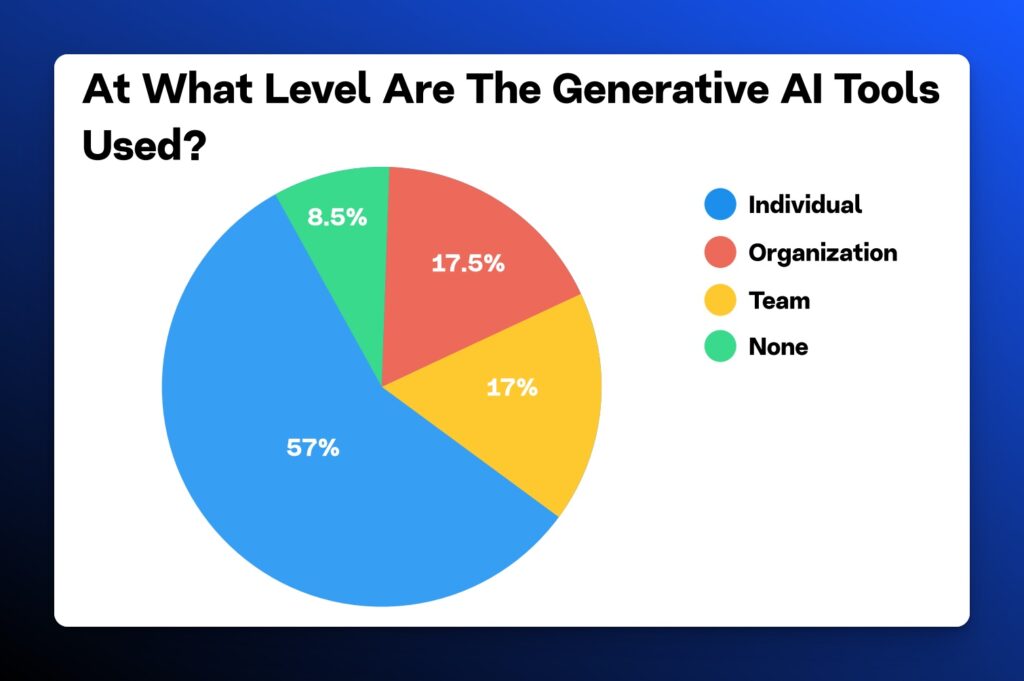
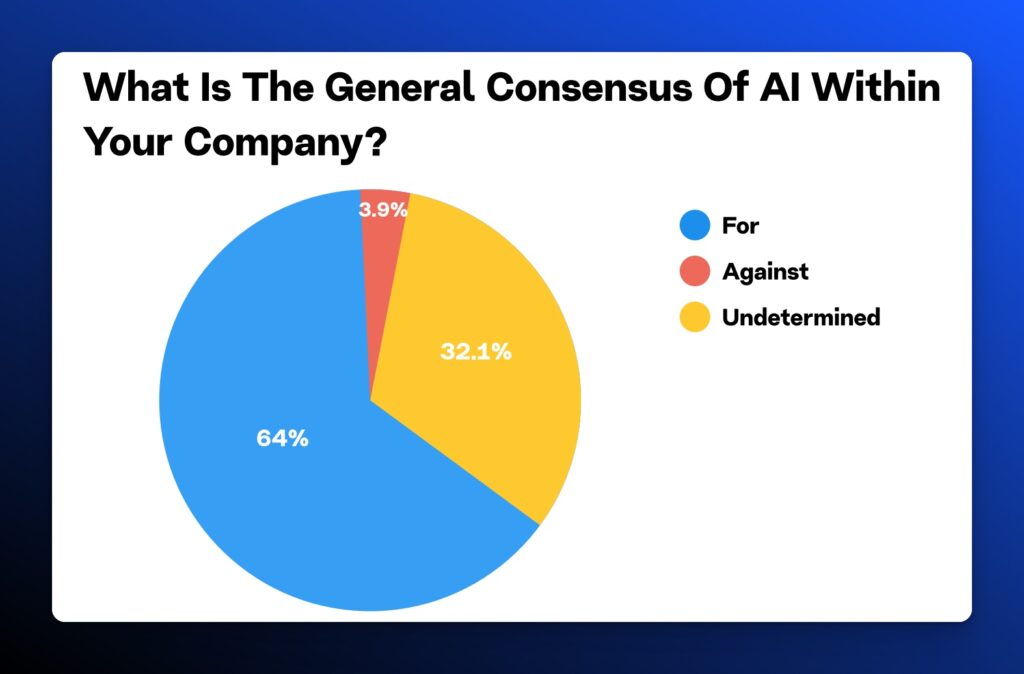
We surveyed over 480 marketing leaders on their perspectives on generative AI in SEO and have analyzed the findings so that you can see where you stand among your peers and competitors.
Join us to explore the practical aspects of merging human expertise with the capabilities of artificial intelligence in content creation. As we look forward to 2024, let’s discuss the best ways to use both subject matter experts (SMEs) and generative AI in your content strategy.
OpenAI DevDay: Recap – AIPRM
- OpenAI Dev Day showcased GPT-4 Turbo, emphasizing extended context length and updated world knowledge until April 2023.
- New modalities such as DALL-E 3 integration and text-to-speech capabilities were introduced, expanding creative possibilities.
- OpenAI significantly reduced the cost of GPT-4 Turbo, making it more accessible for developers.
Takeaway for SEOs: Understanding the extended capabilities and affordability of GPT-4 Turbo can guide SEO professionals in leveraging AI for more innovative and cost-effective content creation and optimization strategies.
Beginner’s Guide to LLM’s Part 2 – Britney Muller – DataSci
Britney explains the intricacies of large language models (LLMs), highlighting the ethical, environmental, and technical strides being made to improve their development and deployment. She emphasizes the critical need for transparency in AI through initiatives like Data Cards for dataset documentation. Further, she explores how integrating various models with LLMs enhances their accuracy, despite inherent limitations due to their design.
- Ethical AI and environmental considerations are being addressed by initiatives to create LLMs thoughtfully, using renewable energy and efficient hardware like Google’s TPU and quantum computing.
- LLMs are adept at identifying linguistic patterns and can perform tasks like translation and content generation but struggle with understanding context, current events, and environmental friendliness.
- Challenges include dealing with ambiguous language and integrating additional functionalities for improved performance, as seen with Retrieval Augmented Generation (RAG) used by Bing and Google.
For SEO professionals, the takeaway is the importance of staying informed about LLMs’ capabilities and limitations, particularly regarding content generation and the need for responsible deployment to avoid issues like those encountered by Microsoft’s chatbot “Tay”.
Rank Tracking: Now with your content relevance score

Join Garrett Sussman each week as he pulls out all of the biggest and smallest stories from the past week that touch the world of SEO.
Get the scoop on what’s happening to Google, game-changing strategies for SEOs, and the people that you should have on your SEO radar.
